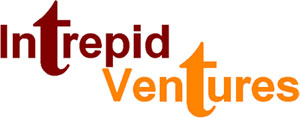Facebook’s cryptocurrency Libra has the potential to increase currency and payment-system competition globally. Not surprisingly it’s provoked a firestorm of concern and protest from regulators, politicians, and a medley of activists.
Addressing the House Financial Services Committee July 10th Fed Chairman Jerome Powell declared Libra potentially a “systemic risk” raising “serious concerns regarding privacy, money laundering, consumer protection and financial stability.” Bank of England governor Mark Carney warned it wasn’t going to start unless it was “rock solid.” French Finance Minister Bruno Le Maire thundered he would prevent Libra from becoming “a sovereign currency that could compete with the currency of states.”
Governments protect their currency monopolies. Liberty Dollar founder Bernard von NotHaus was prosecuted and convicted of making and distributing coins resembling U.S. coins. The North Carolina Western District U.S. Attorney lambasted Liberty Dollar as “a unique form of domestic terrorism” attempting “to undermine the legitimate currency of this country.”
Facebook has managed to attract political ire on both sides of the political aisle.
Senate Banking Committee Ranking Member Sherrod Brown mocked Libra as “monopoly money.” House Financial Services Chair Maxine Waters worries it might be intended “to establish a parallel banking and monetary policy system to rival the dollar.”
The day after Powell’s comments President Trump weighed in tweeting “We have only one real currency in the USA,” “it will always stay that way” and that “Facebook Libra’s ‘virtual currency’ will have little standing or dependability.”
Friends of Earth-US, U.S. PIRG, the powerful public-sector union SEIU, et al demanded a moratorium on Libra pending addressing a laundry list of concerns. Some contended Libra was “too dangerous to be permitted to proceed.”
Few argue against more payment-system competition. Currency competition, however, doesn’t square with monetary economic orthodoxy, and, is alien to most Americans. But, the dollar circulates in countries like Ecuador, Panama and Zimbabwe. Hong Kong’s currency is tied to the dollar through a currency board. In Denationalisation of Money: The Argument Refined, Nobel-Prize-winning economist Friedrich Hayek advocated permitting private currencies to compete with government fiat money.
Designed as a global digital currency Libra could do just that. It will be a “stablecoin” backed by a reserve of fiat currencies deposited at banks and short-duration government securities. Tying it to a hard asset like gold would have been bolder but also more threatening to central banks. In contrast, Bitcoin is backed by nothing more than the hope there’s a greater fool willing to buy it for more. Cryptocurrencies Tether and Pax promise to redeem each token for a dollar. Libra, however, is designed more like a mutual fund than demand-deposit liability, perhaps to reduce the risk of being regulated as a bank.
Libra’s manifesto recites a litany of do-good pieties. One doesn’t have to be a cynic, however, to understand Facebook’s commercial motivation. Libra could enable the social-media giant to increase engagement, advertising effectiveness and commerce velocity. It could pay users Libra to watch ads and discount ads and payment fees paid in its digital currency.
Notwithstanding for the moment often weak smart-phone penetration, emerging markets with weak currencies, banking and payments systems present an enticing opportunity to boost commerce. In Venezuela with a million-percent-plus inflation Libra might be an attractive store of value, unit of account and means of payment. Activists worry about Libra’s impact on developing countries’ monetary policies. One of the best things that could happen to countries with debased fiat money would be robust currency competition and losing control of their monetary policy.
Libra will be controlled by a Geneva-based association, not directly by Facebook. Geneva conveys neutrality. Washington prevents US-headquartered Visa, Mastercard and PayPal from operating in North Korea, Iran, Syria and Crimea. The governance model is intended to allay fears it’ll be controlled by the social-media Gargantua and create a broad ecosystem of support and participation.
Authorized resellers will buy and sell Libra, supporting processing exchanges and institutions. In the US resellers and processors at a minimum are likely to be regulated as money transmitters.
Facebook will have its own digital wallet for Libra Calibra, integrated with Messenger and Whatsapp. If Libra gets traction Google Pay, Apple Pay, Samsung Pay and PayPal will likely support it.
The two genuinely global retail-payment networks Mastercard and Visa joined the Libra association. While a new currency per se wouldn’t hurt them, a widely-adopted electronic-payment system would. In the tent they signal they’re open to payments innovation and give a di rigueur nod to Facebook’s litany to more financial inclusion. Attaching Mastercard and Visa debit cards to Libra accounts would give it instant global acceptance, albeit in fiat currencies. But, if several billion Facebook users used Libra for retail payments and to transfer funds to friends and family, it’d be catastrophic for traditional retail-payment and money-transfer systems.
If Libra runs the regulatory gauntlet in enough jurisdictions, it still faces an enormous challenge. Unless and until Libra achieves network critical mass it offers little value to anybody. In payments finding a path to critical mass isn’t easy, particularly in markets well-served by established systems. Most new payment systems, notwithstanding being putatively more secure, cheaper, or in some other respect superior, fail.
Libra threatens and stresses existing systems. No bad thing. A credible, lightly-regulated, new global currency and payment system would force existing currencies and payment systems to perform better.

